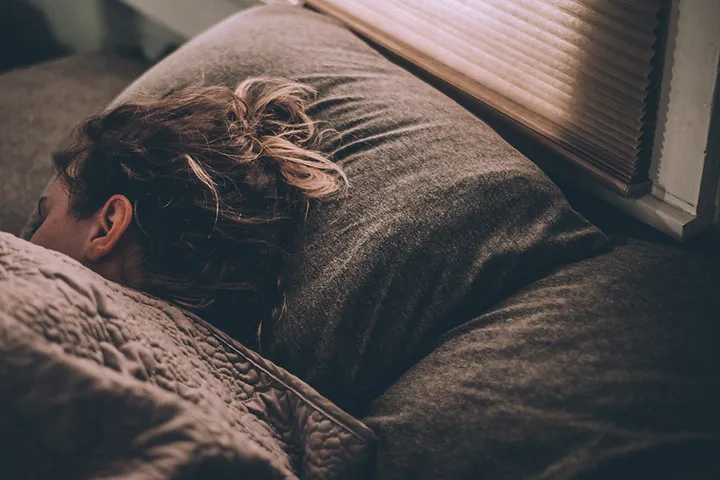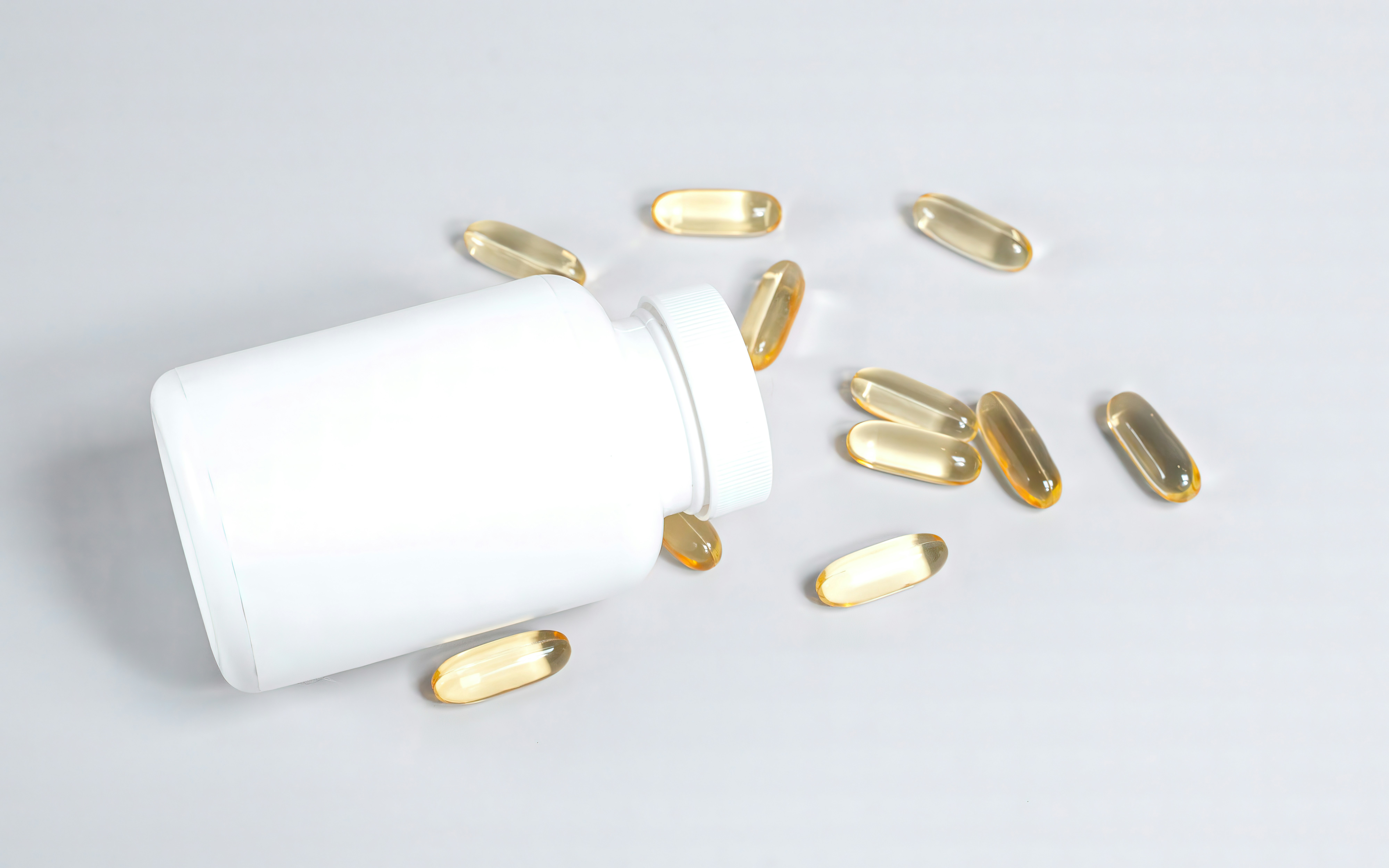Do you ever wake up so groggy that you can’t seem to get out of bed? Either you can’t keep your eyes open or when you finally do FORCE your way out of bed you feel like a complete zombie with your eyelids half closed and like you can’t think clearly. It also doesn’t seem to matter how much sleep you get or what hour you wake up. What’s the usual solution? Grabbing that first cup of coffee to try to wake up, of course.
What you’re experiencing is what scientists have coined “Sleep Inertia.” Essentially, it’s the grogginess felt upon awakening that impairs cognitive performance and tends to go away as we go on with our day. It can last anywhere from 20 minutes to a couple of hours. BLEH! Scientists who study this phenomenon will tell you that the cause is somewhat mysterious although they have some solid ideas. However, I will tell you that I have loads of clinical experience not only with this phenomenon, but reducing and even eliminating it (most of the time). Here’s how…
I’m going to get a little science-y for a basic explanation of why scientists think this occurs.
Delta Waves
Sleep generally rotates through 4 sleep cycles and REM sleep. The first two cycles are lighter sleep and the last two are deep sleep. The deepest cycle is called Delta because it produces the deepest sleep (measured in Delta waves). Waking up in this cycle can cause extreme grogginess.
Waking and Sleep Deficits
Hopefully, you’re not yawning yet. Other causes are waking in the middle of the night and going back to sleep or waking after prior sleep loss. For example, a sleep deficit from previous night’s sleep. If you’re perpetually getting less than 7-8 hours sleep and/or waking up in the middle of the night, it’s more likely you will suffer from Sleep Inertia.
Bio-Individual Reasons for Sleep Inertia
There are some more key things that can contribute to this and even reasons behind the middle-of-the-night waking.
Circadian Craziness
Our circadian rhythms are responsible for our body’s natural ability to fall asleep and wake up. We have these light receptors in our eyes that tell us when to produce melatonin for falling asleep and when to start increasing our cortisol to wake up. This is largely dependent on training our bodies to see light and dark at the same time every day. It’s also the reason why individuals with night shift work can have sleep problems in addition to health problems. Lack of sleep contributes to chronic health conditions.
I’ll admit I don’t always love being right about things, but I had a client call me after an overseas work trip where she got about 4 hours of sleep per night and barely had time to eat. I told her in a previous counseling session how important sleep was to maintaining healthy weight and lowering the risk of chronic disease. She thought for sure with her intense physical activity and lack of eating as much due to her situation that she would have lost weight, but she didn’t even lose an ounce. The lightbulb went on for her and she made the connection with what I had taught her. Sleep is so important! That’s the point of this blog, right?
You can jump start your Circadian cycles again by getting up and watching the sunrise and sunset and avoiding any artificial light (blue light in particular) after dark.
Adrenal Issues
Adrenal issues can occur for a variety of reasons: stress, inflammation, lack of sleep (but it can also cause lack of sleep), intense exercise, blood sugar dysregulation, caffeine intake, and the list goes on. It also looks like a little extra fluff added around the middle, particularly in women. The most common thing I see is either difficulty falling asleep, night time waking, and/or difficulty waking in the morning. However, someone can fall asleep super easily, but wake at 2 am and that’s enough evidence for adrenal stress.
In my practice, we can actually test for this issue with a urinary or salivary adrenal (cortisol) test to see if your cortisol response isn’t optimal throughout a 24-hour period. This isn’t the same as a single cortisol blood test which is largely uninformative and will not identify this problem. A 24-hour blood test can be more helpful, but it can be invasive with multiple needles or inconvenient in comparison.
We can then support clients with appropriate interventions based on their results.
Caffeine Intake (Yup, I’m the bearer of bad news here)
Since caffeine is a stimulant, it can stress the adrenals causing the above issue. If you already have adrenal stress due to dysregulation of the Hypothalamic-Pituitary Adrenal Axis (or HPA Axis) then consuming caffeine can actually worsen or cause this issue. It’s a perpetuating cycle. You drink coffee > stress the adrenals > are tired in the afternoon > drink more coffee to function > stress the adrenals more > you might be exhausted in the evening > sleep terribly > wake up groggy…and ‘round and ‘round we go.
When I finally can convince these clients to quit coffee (gradually) they are SHOCKED by how much more energy they actually have without it. It’s not easy for everyone to do and so people avoid quitting because it usually means a few days of being super tired and groggy before your body finally starts to re-regulate. Then I switch them over to some botanical brain support to help and they’re even more amazed by their productivity and focus. So, yeah…sorry, not sorry?
Slow Liver Function
The liver can get a bit sluggish over the years from environmental stressors, medication, toxins, poor dietary components, genetics, and nutrient issues. The liver has a really big job and missing nutrients along with other stressors can start to slow it down. Whenever I put clients on my custom Purification program one of the biggest things they reportedly notice is improved sleep quality and waking up refreshed. Some of my clients even report popping out of bed right when they open their eyes. Taking care of our liver health is key for overall health.
Hormone Imbalance or Changes
There is an optimal ratio of estrogen to progesterone and when it is off it can negatively impact our sleep. How do you know if hormones are a contributing factor? Check out this list of signs and symptoms below and see if any apply to you at all. We’re told in traditional medicine that some of these signs or symptoms “just happen” or are “normal” and I’ll tell you, it doesn’t and it isn’t. If you have these, something is likely out of whack:
· Heavy Periods
· Blood Clots in Period
· Pre-Period Spotting
· Endometriosis
· Fibroids
· Moderate to Severe Menstrual Cramps
· Menstrual Headaches
· Hot Flashes
· Night Sweats
· PMS
· Birth Control (yup)
When clients complain about any of the above, it’s time to have a conversation about optimizing hormone balance and maybe even testing to see where the problem lies. One test we consider is a dried urine test that not only tests hormones directly (what blood labs test), but also hormone metabolites, phase 2 liver detox, and organic acids (nutrient metabolites). BONUS: it also tests adrenal hormones. This can be a very informative test to teach us what’s going on globally with hormones and the steps we need to take to support it.
Poor Sleep Hygiene
This could be a whole other blog, but includes things like inconsistent sleep cycles, too much light after the sun goes down, and not getting enough sleep. I suggest using blue light glasses, not watching TV or being on your phone/computer/social media within an hour of bed, and add in reading before bed instead of TV or the phone.
Even adding in a meditative practice before bed can prime your body for relaxation and sleep. If you ever notice you wake up tense in the morning like you had a “stressful” sleep, you probably need meditation and maybe herbs before bed to help you relax and improve sleep. Of course, I recommend seeing an informed Functional Nutritionist like us here at HW for the most optimal intervention for you. Some of those herbs might be contraindicated in medications or poor quality and we would hate for you to waste money or cause harm unintentionally. You can read more about why working with us and getting quality supplements are important here.
Other Causes
Hypothyroidism, Blood Sugar Problems, Food allergies/sensitivities, etc.
As you can see many factors independent of just not sleeping or sleeping consistently can cause sleep problems. If you think you could benefit from talking to us about evaluating what the issue might be for you, apply for an appointment with us so we can help optimize your wellness with you.
If you’ve been wondering about personalized nutrition consultation and how it can help you, click here to apply for your complimentary discovery call.
For future information about news, events and services join the Hope Wellness mailing list. Don’t worry, I’m not super spammy. I hate that too.
Want more great info? Check out this recent article “I couldn’t do THIS until I was 38 because of CIRS…”
Have a question or blog topic you’d like me to cover? Contact me and let me know!





